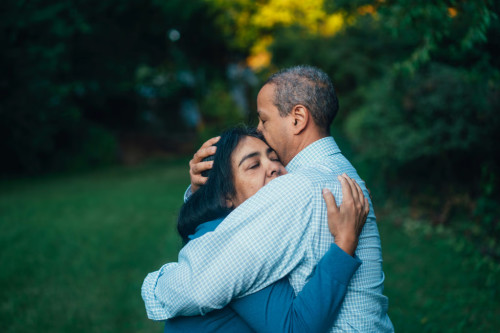








Birches Health Gambling Addiction Treatment - Virtual
Verified Center
This provider's information has been quality-checked by Recovery.com's Research Team for accuracy and completeness, including center verification through appropriate third-party organizations.
Treatment Focus
This center provides behavioral addiction treatment tailored to your unique concerns and symptoms, all in a supportive and compassionate environment.
Primary Level of Care
The delivery of therapeutic services utilizing technology such as video conferencing, online messaging or phone calls, allowing for flexibility, comfort and increased access to care
Treatment Focus
This center provides behavioral addiction treatment tailored to your unique concerns and symptoms, all in a supportive and compassionate environment.
Primary Level of Care
The delivery of therapeutic services utilizing technology such as video conferencing, online messaging or phone calls, allowing for flexibility, comfort and increased access to care
Provider's Policy
Birches Health accepts most insurance plans to cover up to 100% of treatment after deductibles. Many clients pay less than $25 per session after insurance. The majority of prospective clients are in-network. We partner with state governments to help with costs for patients without private insurance.
Birches Health Gambling Addiction Treatment - Virtual
Birches Health Gambling Addiction Treatment - Virtual
About Birches Health Gambling Addiction Treatment - Virtual
Discover what feeling good again really means—with help that meets clients where they are. Birches Health offers confidential, insurance-covered outpatient counseling for those struggling with gambling addiction. Their virtual outpatient program is led by a seasoned clinical team with decades of experience treating gambling addiction. With a deep focus on accessibility and privacy, no one has to navigate recovery alone.
Receive Expert Help—All Online
Treatment isn’t just about stopping a behavior—it’s about understanding the person behind it. That’s why every journey begins with a clinical evaluation, where a therapist takes the time to see clients fully—their challenges, patterns, and goals. From there, they design a personalized care plan tailored to their needs and their life. In follow-up sessions, that plan becomes a guide with actionable steps and accountability clients move forward. The clinicians use therapies that don’t just treat the symptoms of addiction—they help untangle the emotional drivers and create sustainable change. And because it all happens online, clients begin healing where they feel safest. As an added layer of support, Birches also offers a free weekly gambling support group—creating space for connection and understanding.

Highlights from the Center
Highlights
These highlights are provided by and paid for by the center.
1-on-1 Counseling
Customized Treatment Plans
Utmost Confidentiality
Tech Friendly
Center Overview
Treatment Focus
This center provides behavioral addiction treatment tailored to your unique concerns and symptoms, all in a supportive and compassionate environment.

Birches Health Gambling Addiction Treatment - Virtual
Insurance Accepted
Cash Pay Rates
Estimated Cash Pay Rate
Center pricing can vary based on program and length of stay. Contact the center for more information. Recovery.com strives for price transparency so you can make an informed decision.




Recovery.com Verified Listing
Recovery.com verified that the name, location, contact information and license to operate for this treatment provider are valid and up-to-date.

Licensed in the United States
Recovery.com is an independent, third-party mental health resource. Verification does not imply endorsement and does not guarantee the quality of treatment services.
Your Care Options
Specializations
Gambling
Excessive, repetitive gambling causes financial and interpersonal problems. This addiction can interfere with work, friendships, and familial relationships.
Who We Treat
Men and Women
Men and women attend treatment for addiction in a co-ed setting, going to therapy groups together to share experiences, struggles, and successes.
Treatment Services
Intensive Family Program
Some rehabs offer intensive programs for loved ones. Group and individual therapy sessions help everyone heal, and improve family dynamics.
Intensive Outpatient Program
In an IOP, patients live at home or a sober living, but attend treatment typically 9-15 hours a week. Most programs include talk therapy, support groups, and other methods.
Licensed Primary Mental Health
Some primary care providers offer mental health diagnosis and treatment. This can prevent patients from developing more serious conditions.
Private Therapy
This is an individual therapy that's often available at private therapy clinics. Clients may be able to choose a therapist who best fits their unique needs.
Outpatient
During outpatient rehab, patients attend a structured treatment program while continuing to live at home.
Approaches
Evidence-Based
A combination of scientifically rooted therapies and treatments make up evidence-based care, defined by their measured and proven results.
Holistic
A non-medicinal, wellness-focused approach that aims to align the mind, body, and spirit for deep and lasting healing.
Individual Treatment
Individual care meets the needs of each patient, using personalized treatment to provide them the most relevant care and greatest chance of success.
Medical
Medical addiction treatment uses approved medications to manage withdrawals and cravings, and to treat contributing mental health conditions.
Therapies
1-on-1 Counseling
Patient and therapist meet 1-on-1 to work through difficult emotions and behavioral challenges in a personal, private setting.
Online Therapy
Patients can connect with a therapist via videochat, messaging, email, or phone. Remote therapy makes treatment more accessible.
Mindfulness Therapy
This ancient practice can be mental, emotional, and even spiritual. In meditation, you focus your attention on the present moment without judgement.
Couples Counseling
Partners work to improve their communication patterns, using advice from their therapist to better their relationship and make healthy changes.
Experiential Therapy
With this approach, patients heal by doing. Therapists help patients process difficult emotions to speak, using guided activities like art or dance.
Family Therapy
Family therapy addresses group dynamics within a family system, with a focus on improving communication and interrupting unhealthy relationship patterns.
Life Skills
Teaching life skills like cooking, cleaning, clear communication, and even basic math provides a strong foundation for continued recovery.
Conditions We Treat
Gambling
Excessive, repetitive gambling causes financial and interpersonal problems. This addiction can interfere with work, friendships, and familial relationships.
Languages
Aftercare
Care Designed for Your Needs
Special Considerations
Couples program
Using gentle clinical care, therapists guide patients and their partner through guided sessions to address issues and work towards lasting solutions.
Gender-specific groups
Patients in gender-specific groups gain the opportunity to discuss challenges unique to their gender in a comfortable, safe setting conducive to healing.

Learn More About the Center
Free Clinical Gambling Addiction Test
For anyone who’s wondered whether gambling is still fun or quietly taking over, this quick assessment can give honest clarity.
Addiction to Dating Apps
Explore how dating apps can become addictive and what to do about it.
How is Gaming Addiction Diagnosed?
Read this article to understand when gaming crosses the line from passion to problem.
Levels of Gambling Addiction Severity
Discover how gambling addiction is measured.





